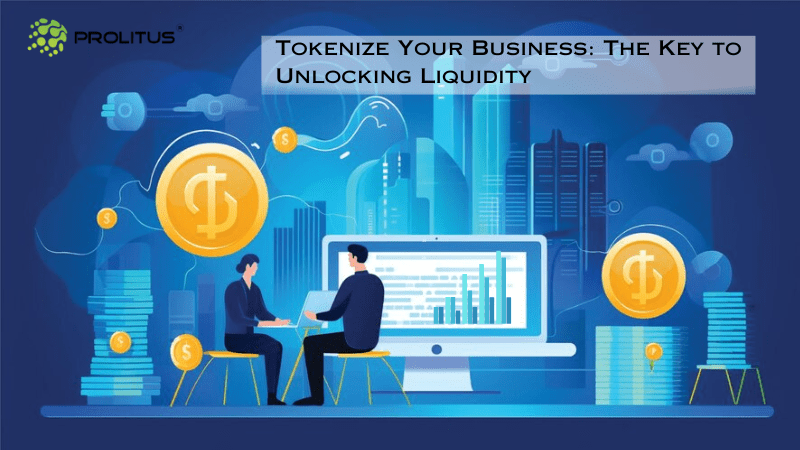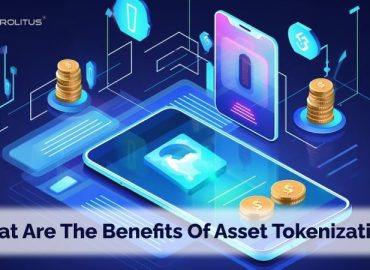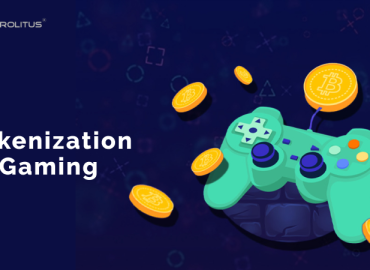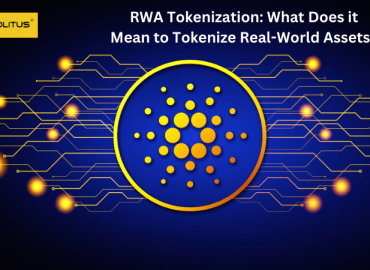Tokenize Your Business: The Key to Unlocking Liquidity
In today’s fast-paced business landscape, liquidity is the lifeblood of success. However, many companies find themselves strapped for cash when opportunities arise. Enter “Tokenization,” a groundbreaking financial innovation that has the potential to revolutionize how businesses access and manage liquidity. Discover the key to staying agile, seizing opportunities, and thriving in an increasingly interconnected and digital economy.
Understanding Liquidity
Liquidity is the lifeblood of any business. It represents the ability to convert assets into cash quickly, ensuring a company’s ability to meet short-term financial obligations. For businesses, liquidity is essential for funding day-to-day operations, paying bills, and seizing growth opportunities. However, maintaining adequate liquidity can be challenging, especially for small and medium-sized enterprises. Liquidity issues can lead to financial instability and missed opportunities. In this article, we will explore how tokenization can address liquidity challenges by providing a new avenue for businesses to access capital, unlock the value of their assets, and navigate financial ups and downs more effectively.
What Is Tokenization?
Tokenization is a groundbreaking financial innovation that has emerged in the digital age. It involves converting ownership rights of an asset, whether it’s real estate, stocks, or other valuables, into digital tokens on a blockchain or distributed ledger. These tokens represent a share of the asset and can be traded or transferred with ease. Tokenization democratizes investments, enabling fractional ownership and access to a global pool of investors. Unlike traditional assets, tokens offer transparency, security, and 24/7 liquidity. They have the potential to revolutionize how businesses raise capital and how individuals invest.
Type Of Blockchain Tokenization
Blockchain tokenization is a groundbreaking innovation that has revolutionized various industries. This transformative technology allows for the representation of real-world assets, such as real estate, art, and stocks, as digital tokens on a blockchain. In this exploration, we’ll delve into different types of blockchain tokenization methods, shedding light on their diverse applications and advantages.
NFT tokenization
One of the prevailing forms of tokenization in contemporary times revolves around blockchain-based NFTs (Non-Fungible Tokens). NFTs are digital representations of distinctive assets, devoid of preset values, allowing for proof of ownership, enabling the exchange of diverse items, and validating transactions. NFTs find utility across realms like digital art, gaming, and real estate.
Governance tokenization
Governance tokenization is tailored for blockchain-based voting systems. It enhances decision-making within decentralized protocols by enabling all stakeholders to participate in on-chain voting, debates, and collaborative processes, promoting fairness and transparency.
Utility tokenization
Utility tokens are generated through specific protocols, granting access to diverse services within the same ecosystem. Unlike investment tokens, utility tokens do not involve direct investment. They foster robust platform engagement, enhancing the overall ecosystem’s vitality.
How to Tokenize Your Business and Use Digital Assets
In the dynamic world of blockchain technology, tokenizing your business and leveraging digital assets are pivotal strategies for staying ahead of the competition. Tokenization involves the conversion of rights to an asset into a digital token on a blockchain, providing a plethora of benefits like liquidity, accessibility, and transparency. Digital assets can include anything from cryptocurrencies to tokenized real estate. Here’s a step-by-step guide to help you understand how to tokenize your business and harness digital assets effectively.
Step 1: Understand the Basics of Tokenization and Digital Assets
Before diving into tokenization, it is crucial to understand the fundamentals. Digital assets, such as cryptocurrencies and tokens, represent ownership of an underlying asset or a set of rights. They facilitate secure and seamless transactions over the internet. Tokenization divides an asset into smaller, fungible units, allowing businesses to sell or trade them more easily.
Step 2: Assess the Suitability
Determine whether your business can benefit from tokenization. Typically, businesses with tangible or intangible assets that can be fragmented will benefit the most from tokenization. These include real estate, art, or intellectual property.
Step 3: Develop a Comprehensive Business Model
Once you have determined the suitability, develop a comprehensive business model outlining the structure of the token, rights of the token holders, distribution strategy, and a clear value proposition. Also, consider how the tokens will fit into the existing business operations and strategies.
Step 4: Legal Compliance and Regulation
Understanding and adhering to the local laws and regulations surrounding digital assets is vital. Consult with legal experts to navigate complex regulatory landscapes, ensuring your tokens comply with securities laws, anti-money laundering (AML) and know your customer (KYC) regulations.
Step 5: Choose a Blockchain Platform
Select a suitable blockchain platform based on your business needs. Ethereum is often a popular choice due to its robust smart contract capabilities, but other platforms like Binance Smart Chain or Flow Blockchain might be more suitable depending on your requirements.
Step 6: Create Your Token
Develop your token, incorporating features that align with your business model. Typically, tokens are created using smart contracts, self-executing contracts with the terms directly written into the code, ensuring security and transparency.
Step 7: Develop a Security Infrastructure
Implement robust security measures to safeguard digital assets from unauthorized access and cyber-attacks. Employ multi-signature wallets, cold storage solutions, and regularly audit your smart contracts to ensure their security.
Step 8: Launch an Initial Coin Offering (ICO) or Security Token Offering (STO)
To distribute your tokens, you might consider launching an ICO or an STO, depending on the nature of your token. An ICO is suitable for utility tokens, while an STO is appropriate for tokens representing ownership in underlying assets.
Step 9: Engage Your Community
Building and nurturing a community around your digital assets is essential for their success. Regularly communicate with your community through social media, forums, and other platforms to keep them informed and engaged.
Step 10: Integrate Digital Assets into Your Business Operations
Once the token is launched, integrate it seamlessly into your existing business operations. Whether it’s used as a utility token within your ecosystem or as a representation of ownership, ensure that it adds value to your customers and stakeholders.
Few Case Studies where Tokenization is Implemeted
Case Study 1: Real Estate Tokenization – Meridio
Background:
Meridio, a blockchain-based platform, specializes in fractionalizing and tokenizing real estate assets, allowing multiple investors to hold shares of the property represented by tokens.
Application:
A property, say a commercial building, was tokenized on the Meridio platform, breaking down its value into numerous individual tokens. This allowed multiple investors to purchase tokens, each representing a share of the property.
Outcome:
This approach enabled small-scale investors to participate in real estate investments with a lower capital requirement. It improved liquidity in the real estate market and allowed property owners to unlock the value in their assets easily. Additionally, the transparency and security offered by the blockchain technology reduced disputes and improved trust among investors.
Case Study 2: Art Tokenization – Myco
Background:
Myco, a blockchain platform, offers tokenization services for pieces of art. By tokenizing artwork, Myco allows multiple investors to own shares of a piece of art, represented by tokens.
Application:
An esteemed painting valued at $2 million was tokenized into 2 million tokens, each representing a $1 share of the painting. Art enthusiasts and investors could then buy, sell, and trade these tokens on the platform, essentially owning portions of the painting.
Outcome:
The tokenization facilitated by Myco democratized access to high-value art investments, allowing a wider range of investors to gain exposure to the art market. Additionally, token holders could benefit from the appreciation of the art value over time and earn profits by selling their tokens. The blockchain-based system ensured the authenticity and provenance of the artwork, reducing the risks associated with art forgery.
Case Study 3: Supply Chain Tokenization – Chainlink
Background:
Chainlink is a decentralized oracle network that helps smart contracts on Ethereum to connect to real-world data, and it is applied to create transparent and secure supply chains.
Application:
A pharmaceutical company implemented Chainlink to tokenize its supply chain process. Each stage in the supply chain, from manufacturing to delivery, was represented by tokens. These tokens were used to verify the completion of each stage and ensured the authenticity and quality of the pharmaceutical products.
Benefits of Tokenizing Your Business
Tokenizing your business offers a multitude of compelling advantages that can transform the way you manage assets and raise capital. Here, we’ll delve into the key benefits of embracing this innovative approach to finance.
Improved Liquidity: Tokenization provides an avenue for fractional ownership, allowing you to divide assets into smaller, tradeable tokens. This facilitates liquidity, as investors can buy and sell these tokens more easily compared to traditional, illiquid assets.
Access to a Global Investor Base: By tokenizing your business, you open doors to a global pool of investors. Geographical boundaries become less relevant, attracting a diverse range of potential stakeholders.
Enhanced Transparency: Blockchain technology, often used in tokenization, ensures transparent and immutable record-keeping. This fosters trust among investors, as they can track the ownership and transaction history of tokens in real-time.
Reduced Transaction Costs: Tokenization eliminates intermediaries in asset transfer, leading to cost savings. Smart contracts automate many processes, reducing administrative expenses.
Fractional Ownership: Tokenization enables fractional ownership, making it easier for smaller investors to participate in your business, diversifying your investor base.
Incorporating these benefits into your business strategy through tokenization can drive growth, increase access to capital, and provide a competitive edge in today’s evolving financial landscape.
Challenges and Considerations
Tokenizing your business can be a transformative step, but it’s not without its challenges and considerations. Understanding and addressing these issues is crucial to ensure a successful transition to a tokenized model. One of the primary challenges is regulatory compliance. The regulatory landscape for tokenized assets is evolving and can vary significantly between jurisdictions. Navigating these regulations to ensure your tokenization efforts are compliant with securities laws and other financial regulations is essential.
Security is another critical concern. Tokenized assets are stored digitally, making them susceptible to cyber threats and hacking. Implementing robust security measures to protect both your assets and your investors’ interests is paramount.Moreover, liquidity in tokenized markets can sometimes be limited, especially for assets that are less well-known. This means that finding buyers or sellers for your tokens may not always be straightforward.
Lastly, educating stakeholders and investors about tokenization and its benefits can also be a hurdle. It’s important to have a clear communication strategy to ensure everyone involved understands the process and potential risks.
The Future of Tokenization
The future of tokenization promises to be a captivating journey into the heart of digital transformation. As blockchain technology matures, tokenization will extend its reach beyond traditional assets, encompassing intellectual property, carbon credits, and even data itself. DeFi (Decentralized Finance) will continue to play a pivotal role, democratizing financial services and amplifying liquidity. Synergies with AI, IoT, and smart contracts will forge new frontiers, automating processes and enhancing security. Tokenization will evolve, not merely as a financial instrument but as a cornerstone of a decentralized economy, democratizing wealth and redefining how businesses engage with assets. The future beckons, offering boundless opportunities for those who dare to tokenize.
Final Thoughts:
In today’s fast-paced business world, liquidity remains the linchpin of success. Enter tokenization, a transformative financial innovation poised to revolutionize how businesses access and manage liquidity. This article explored tokenization’s role in empowering businesses to tap into a global pool of investors, addressing liquidity challenges, and navigating financial fluctuations.
Tokenization, the conversion of asset ownership into digital tokens on a blockchain, offers numerous benefits, including enhanced liquidity, global investor reach, transparency, and reduced costs. However, it’s not without challenges, including regulatory compliance and security considerations.
The future of tokenization holds immense potential, extending its influence beyond traditional assets and integrating with emerging technologies like DeFi, AI, IoT, and smart contracts.
Prolitus: Your Trusted Partner for Secure Tokenization
As a leading Tokenization Platform Development Company, Prolitus stands as your unwavering ally in the dynamic realm of secure tokenization. We understand that trust is the bedrock of any successful partnership, especially when it comes to the digital transformation of your assets. At Prolitus, our commitment to security and expertise in tokenization technology ensure that your journey towards liquidity, transparency, and global access is not just smooth but also fortified against evolving threats. With a track record of excellence, we empower your business to harness the full potential of tokenization, offering peace of mind in a digital world. Connect with Prolitus today, and embark on a journey of transformation with confidence.





